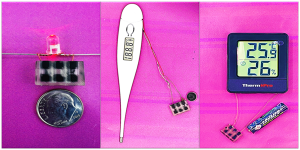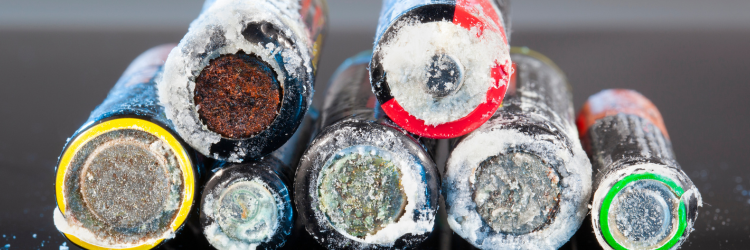Imagine this: a biobattery fueled by the human gut. What about a battery that could work after 100 years? Sound like science fiction? It’s not.
Last year, researchers at Binghamton University and State University of New York published their research into an ingestible biobattery activated by the Ph factor of the human intestine. Now they’ve incorporated their findings for use outside the body.
A new study in the journal Small shares the results of using spore-forming bacteria like the previous ingestible version to create a device that potentially would still work after 100 years. The goal was for microbial fuel cells to be stored for a long time without degradation of biocatalytic activity, which could be rapidly activated by absorbing moisture from the air.

The dime-sized fuel cell was sealed with a piece of Kapton tape, a material that can withstand temperatures from -500 to 750 degrees Fahrenheit. When the tape was removed and moisture allowed in, the bacteria mixed with a chemical germinant that encouraged the microbes to produce spores. The energy from the reaction produced sufficient power for an LED, a digital thermometer, or a small clock.
Heat activation of the spores cut the time to full power from 1 hour to 20 minutes, and the humidity led to higher electrical output. After a week of storage at room temperature, there was only a 2% drop in power generation.

